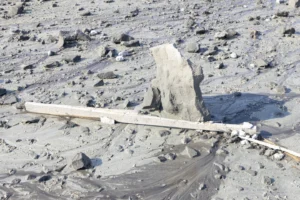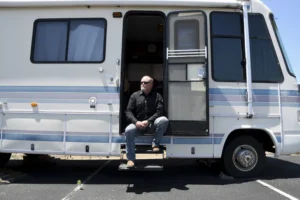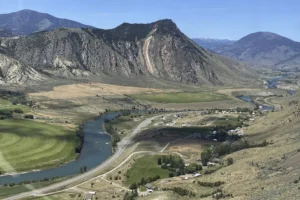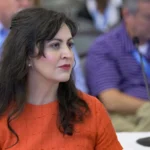WYOMING SCHOOLS AT A CROSSROADS: With Chugwater’s School Struggling, Residents Rally to Start Their Own (Part 3)
Prairie View Community School prepares for fall opening with ag-focused curriculum
- Published In: Other News & Features
- Last Updated: May 11, 2023
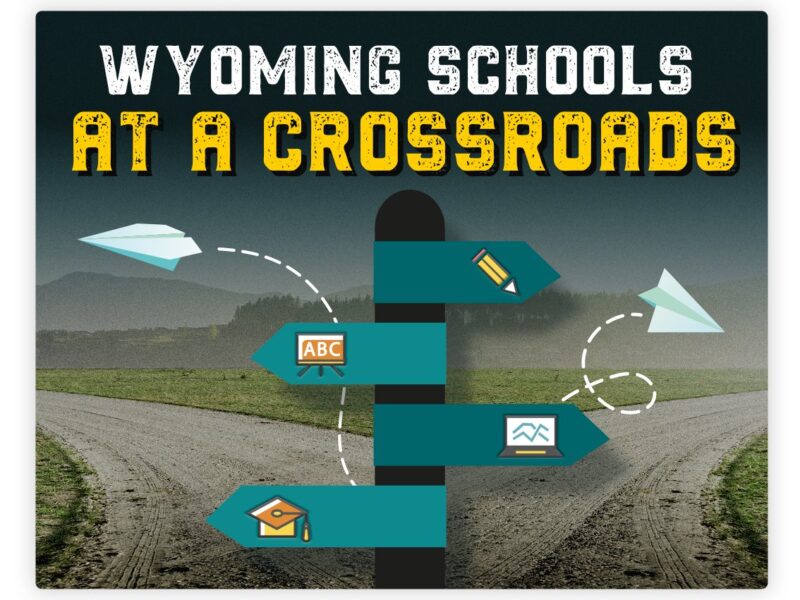
By David Dudley
Special to the Wyoming Truth
This is the third story in a three-part series on charter schools. Check out part one and part two.
Jerah Nix, a 33-year-old nurse and mother of four, had long been fed up with Chugwater School. With funding always an issue, the combined K-12 school struggled to hire and retain teachers. What’s more, it didn’t offer music or computer classes and had few sports offerings.

But those weren’t the only problems, Nix said. “I wanted to contribute to my children’s education, but didn’t feel welcome at Chugwater School,” she said. “They had this, ‘We’ll take it from here’ attitude about collaborating with parents.”
The final straw came when five of Chugwater School’s seven teachers resigned last June. By mid-summer, there was only one teacher for grades K-5.
At that point, Nix said, it became clear that Chugwater, a town of 175 residents along I-25, needed an alternative. The community needed a school that wouldn’t constantly wrestle with budget pressures and teacher shortages — and would better prepare its students for rural life.
Nix withdrew her kindergartener and first grader from Chugwater School and homeschooled them this year. Then she connected with other parents to offer an alternative: Prairie View Community School (PVCS), a new charter school serving students in grades K-12. Like Wyoming’s traditional public schools, charters are funded with taxpayer dollars and are free for students to attend, but they can operate with more flexibility. Prairie View was one of three new charters approved last year and is set to open this fall.
The advent of the charter school has only added to the uncertainty faced by Platte County School District 1. The district operates schools in Wheatland (where the district’s central office is located), Glendo and Chugwater, though there’s some question as to whether that will continue. As of mid-April, Chugwater School had only 31 students – 20 in grades K-5 and 11 in grades 6-12. Chugwater School Principal Robert Daniel, who splits his time with the Glendo School, is unsure what the coming school year will bring.
“I don’t know what our enrollment will look like in the fall,” Daniel told the Wyoming Truth. “What I do know is that when we have enrollment numbers, the Platte County School Board will vote on whether or not Chugwater School will continue to operate.”
He added that, “Even if we have only two students who want to learn, we’ll teach them.”
Rancher Jeremy Westerman and his wife, Tara, plan to send their three sons — aged 5, 7 and 11 — to Prairie View instead of Chugwater School. They, too, are concerned about budget challenges and teacher shortages.

“We love Chugwater School, and appreciate what the teachers are doing for our kids,” Westerman said. “But mostly, we just want our boys go to the same school as their friends. All their friends are going to Prairie View.”
The 2001 Chugwater graduate doesn’t make that decision lightly. But after 16 years in South Dakota, Westerman returned to his hometown in 2017 and found enrollment at his alma mater had roughly halved.
“Right now, my oldest son, Beck, is the only fifth grader there,” Westerman said. “I can tell that he feels down about that, so I want to do whatever I can to help him.”
Meeting a community’s unique needs
In 2022, even before the teacher exodus, Nix began researching best teaching practices for rural schools. She became interested in project-and place-based curriculum models that challenge educators to incorporate community assets into their lessons.
“I don’t think recreating an urban education model works in a rural setting,” she said. “We need more hands-on learning, with an agricultural focus. I feel like that fits the unique needs of our community.”
Nix recruited other parents to develop Prairie View. Entrepreneurs Jill and Christian Winger – who own a ranch, a beef company, the Chugwater Soda Fountain and The Prairie Homestead lifestyle brand – were immediately on board.
“We’d like to see education move beyond a classroom setting with blackboards and desks, and bringing it into the real world,” Winger said. “We want to see an increased focus on tangible skills, immersing children in our community.”
She cited salsa making as an example of project-based learning. Students from all grades would plant and grow the vegetables, herbs and spices for the salsa, while examining the local soil structure, creating a growth strategy and determining potential yields. Older students would look at USDA regulations while master gardeners and local mentors assist.
“It’s a holistic learning model,” Winger said.
Among those looking forward to the unique curricula is Prairie View’s director, Bryce Cushman.
The Laramie native was one of the five Chugwater teachers who resigned last year, primarily, he said, because the district’s budget crunch left it unable to afford teachers. Cushman said he and others were being asked to split their time between Chugwater and Glendo, which is nearly an hour to the north.
“I felt that I couldn’t give equitable time to each school, and that my students would suffer because of that,” he said.

Cushman previously taught at a charter school in Colorado Springs. He said they tend to do a better job of being nimble and meeting students’ needs, “because they’re free from one-size-fits-all approaches.”
For instance, learning how to plant, harvest, store and cook crops will give Chugwater students “the foundation for different businesses that will contribute to the community,” he said.
The school will also work with community mentors to provide training and certifications in welding and OSHA safety protocols – all alongside traditional coursework in English, history, social studies and math.
Preparing for launch
In an effort to address some of the challenges facing teachers, including burnout, Prairie View will feature a four-day week for students.
“Teachers will be able to grade, plan and complete on-site training on their fifth day,” Cushman explained. “And if a student needs some kind of intervention, that can also happen without disrupting the classroom.”

Prairie View plans to hire seven to nine teachers. The school founders intend to stretch the budget — which will be based on actual enrollment numbers — by engaging volunteers to teach music, art and physical education. They’re also working to add extracurricular activities (FFA and 4H) and sports (track and basketball). Some 67 students — 42 in grades K-6 and 25 in grades 7-12 — have expressed their intent to attend, and more are expected to enroll before the fall.
While Prairie View doesn’t have a home yet, the founders hope to set up in Chugwater Schools’ former elementary building, which has been vacant for three years. The Platte County School Board, which oversees the building, didn’t respond to calls and emails seeking comment for this story.
Asked whether Prairie View would pull students away from the Platte County School District and hasten the decline of Chugwater School, Winger said it’s a possibility, but not the intent. She believes that founding a new school will be better for the community in the long run.
“Most of the people we’ve talked with say that they’re ready for this,” Winger said. “We’re pulling in a lot of children that were homeschooled, which will bring in more education funding to our school without pulling it from local schools.”
For example, her own children – aged 7, 10 and 13 — had previously been schooled at home, but are set to enroll at Prairie View.
“I know that change can be scary,” Winger said. “But the world is changing, and it’s challenging us to think differently.”
For Nix, who devoted three months’ worth of 40-hour weeks on the charter school’s application, it’s gratifying to see community members attending Prairie View board meetings and investing in the school’s success.
“It has taken the center stage in my life, over motherhood and my part-time job,” Nix said. “Building a school from scratch is an incredible amount of work. It’s the hardest thing I’ve ever done—and I’ve adopted internationally and run three marathons. I’m stressed and excited to see it come to fruition.”

